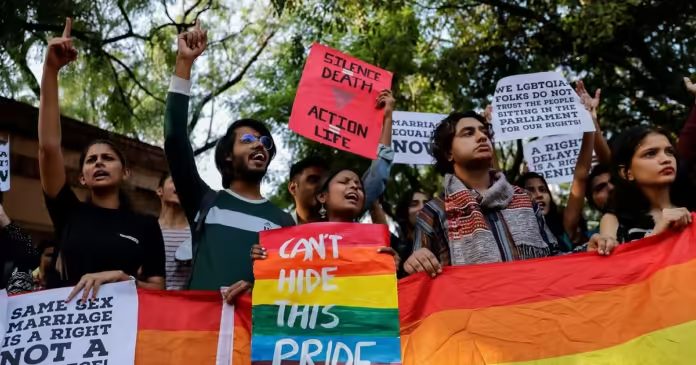- Background:
- The issue of marriage equality in India primarily revolves around legal recognition and rights for same-sex couples. Currently, under Indian law, same-sex marriages are not recognized, and there is no specific provision for same-sex unions.
- Laws and Sections:
- Section 377 of the Indian Penal Code (IPC):
- Section 377 criminalized “unnatural offenses,” including consensual sexual acts between adults of the same gender. This provision was struck down by the Supreme Court of India in the Navtej Singh Johar v. Union of India case in 2018. The court held that consensual sexual relations between adults of the same sex are no longer criminalized under this section.
- Personal Laws and Civil Rights:
- Indian personal laws, which govern matters like marriage and divorce, do not currently recognize same-sex marriages. Marriage laws in India are primarily governed by religious personal laws (Hindu, Muslim, Christian, etc.) and the Special Marriage Act, 1954, which allows inter-faith and inter-caste marriages but does not explicitly mention same-sex marriages.
- Recent Developments:
- The Supreme Court of India is set to consider review petitions related to marriage equality on July 10, 2024. Justices Sanjiv Khanna and Nagarathna have replaced retired judges on the bench handling the case.
- Legal Arguments and Implications:
- The review petitions likely argue for the recognition of same-sex marriages under constitutional rights to equality, dignity, and non-discrimination. They may also seek amendments to existing laws or the enactment of new legislation to provide legal recognition and protection to same-sex couples.
- Impact and Public Discourse:
- The case has sparked significant public discourse on LGBTQ+ rights, civil liberties, and the interpretation of constitutional provisions related to equality and non-discrimination.
- Way Forward:
- The Supreme Court’s decision on the review petitions will have profound implications for the legal status and rights of same-sex couples in India, potentially paving the way for legislative reforms or judicial pronouncements on marriage equality.


